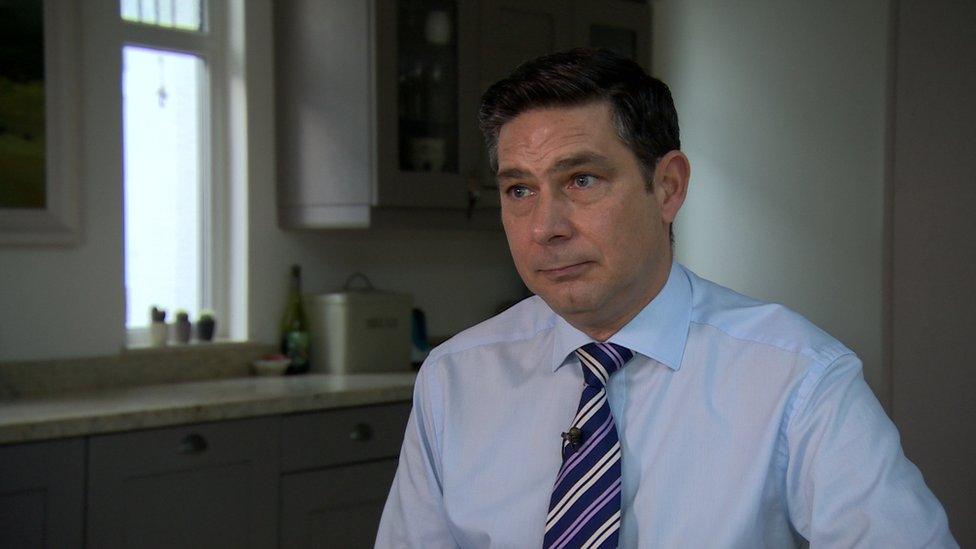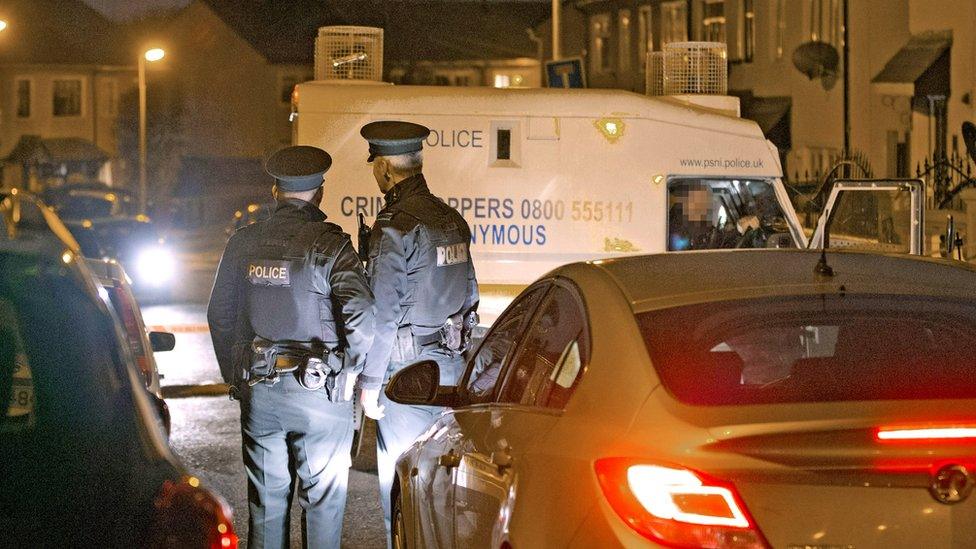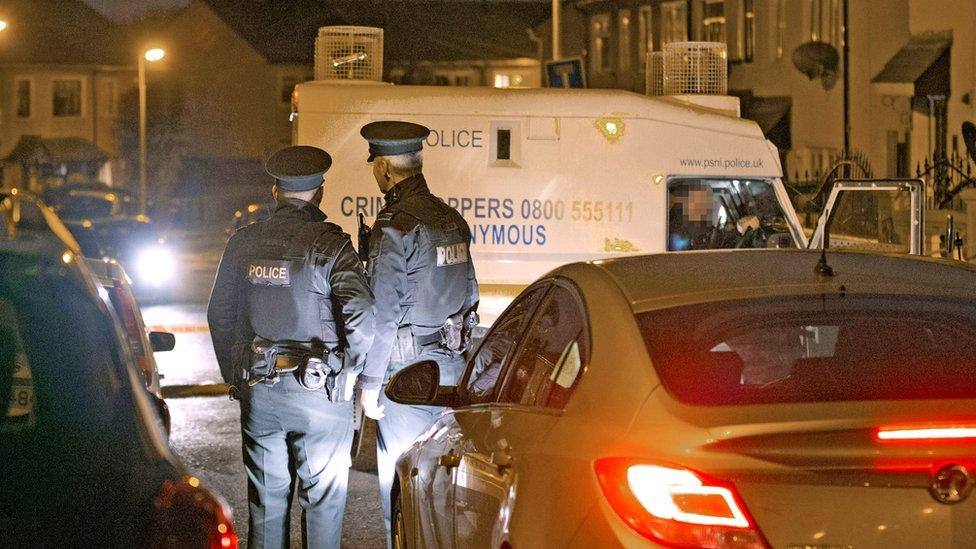Paramilitary attacks 'cause NHS problems' says doctor
- Published

Dr Duncan Redmill some victims' injuries can be so serious they lose their ability to walk
Paramilitary shootings and beatings are causing serious, long-term problems for both the victims and the health service, a senior doctor has said.
Dr Duncan Redmill was on call at Belfast's Royal Victoria Hospital's emergency department when the latest victims were brought in on Sunday.
The two men were shot an hour apart at their homes in north and west Belfast.
He said such attacks often cause "life-changing" injuries and put extra strain on extremely busy A&E departments.
"We are seeing, throughout Northern Ireland, up to 100 [attacks] every year continually and there is not only the staff time and cost, there is also the longer term cost - operations being required," the doctor told BBC News NI.
"Then there is the uncounted cost of the impact to society, in terms of the victim's long-term rehabilitation - whether they return to work, whether they require long-term counselling.
"And, of course, there are mental health and addiction issues associated around these attacks."
'Shattered bones'
Dr Redmill, who is a consultant in emergency medicine at the Royal Victoria Hospital, said some victims' injuries can be so serious they lose their ability to walk and some even lose their lives.
"In terms of the shootings that I see, often there can be severe injuries to some of the bones, commonly in the lower limbs.
"The victims of these attacks may often require orthopaedic surgery on several occasions; reconstructions; bone grafts... which can, on occasion, leave them with disabilities which are permanent."
"The [shootings] can range from a small hole that goes in and out, with minor soft tissue injuries, to fatalities.

Two men were shot an hour apart in their homes in Belfast on Sunday night
"Unfortunately I've seen a couple of fatalities in my career through single gunshot wounds."
"It really depends on where the bullet goes and where it passes through.
"It can pass through arteries, it can pass through nerves, it can shatter bones."
'Brutal and violent'
The consultant said paramilitary beatings could often do more physical damage than gun attacks.
"The beatings can take the form of several assailants using blunt objects such as golf clubs; baseball bats; planks with nails in them; hammers; screwdrivers.
"So the beatings can be more severe than the shootings."
Dr Redmill said that as well as causing chronic pain and mobility problems, the attacks can lead to psychological problems and years of mental ill health.
"In my experience, these attacks are brutal and violent and severe, and often life-changing in terms of the amount of treatment that is required in the long-term."
'Stress and strain'
Hospital emergency departments have been struggling to cope with an unprecedented number of patients this winter after one of the worst flu seasons in years.
Dr Redmill said that having to cope with paramilitary attacks on top of the existing workload was adding to the problems in the health service.
"We're a very busy department.
"These patients can be very unwell so they are automatically move to our resuscitation area, which is a busy area mixed with older people with flu; with stroke cases; with car crashes.
"So we're treating these violent attacks right next door to your mother or your granny who may be suffering from pneumonia.
"It puts a great stress and strain on the staff and on the resources which we have, which are limited as it stands."
- Published29 January 2018
